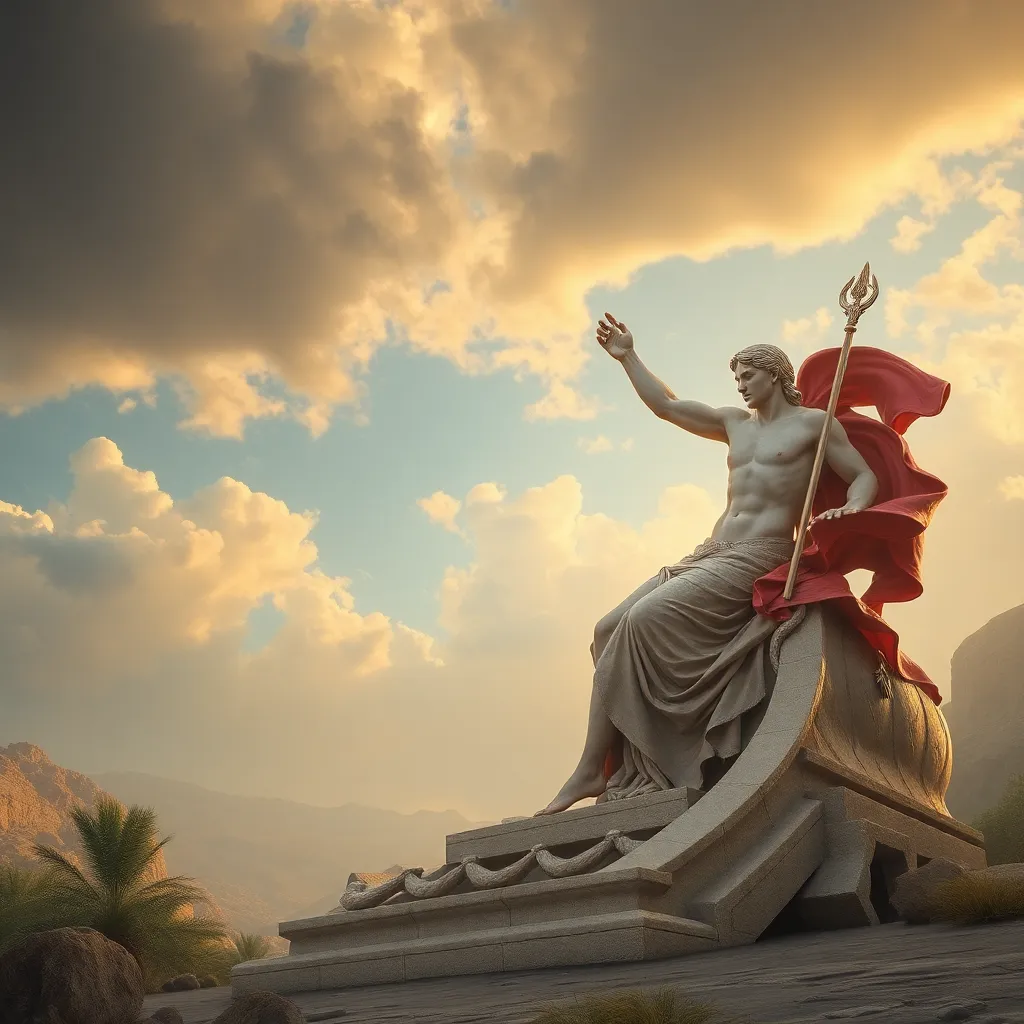The Evolution of the Perseus Myth: From Ancient Texts to Modern Interpretations
I. Introduction
The myth of Perseus is one of the most celebrated tales in Greek mythology, embodying themes of heroism, destiny, and the struggle against formidable foes. As the son of Zeus and the mortal Danaë, Perseus’s journey from a vulnerable child to a legendary hero captures the imagination and underscores the complexities of human experience, even within the realm of the divine.
Studying the evolution of the Perseus myth allows us to understand how narratives transform over time, reflecting the values and beliefs of different cultures. This article aims to explore the origins of the Perseus myth, its key themes and symbols, variations across cultures, and its impact on modern society.
II. Origins of the Perseus Myth in Ancient Texts
The earliest references to Perseus can be found in Hesiod’s “Theogony,” where he is introduced as a key figure within the genealogical framework of Greek gods and heroes. Hesiod’s work lays the foundation for understanding the divine lineage that shapes Perseus’s destiny.
Perseus is not merely a hero but a symbol of the heroic ideal in Greek mythology. His adventures, including the slaying of Medusa and the rescue of Andromeda, showcase his bravery and resourcefulness. Key ancient sources, such as:
- Apollodorus’s “Library,” which provides a detailed narrative of Perseus’s exploits,
- Ovid’s “Metamorphoses,” which offers a poetic interpretation of his story,
- Herodotus and other historians, who often mentioned Perseus in broader contexts.
These texts collectively contribute to the rich tapestry of the Perseus myth, emphasizing different aspects of his character and adventures.
III. Key Themes and Symbols in the Myth
The Perseus myth is replete with significant themes and symbols that resonate throughout various interpretations. Key themes include:
- Heroism and the Archetype of the Hero: Perseus embodies the quintessential hero, facing daunting challenges with courage and intelligence.
- The Significance of Medusa and the Gorgon: Medusa serves as both an antagonist and a symbol of fear, representing the consequences of divine retribution and human flaws.
- The Role of Divine Intervention and Fate: The gods play a crucial role in guiding and assisting Perseus, illustrating the interplay between human agency and destiny.
IV. Variations in the Myth Across Cultures
As the Perseus myth spread beyond Greece, it underwent adaptations influenced by local customs and beliefs. In ancient Rome, for instance, the myth was celebrated in literature and art, often emphasizing different moral lessons and cultural values.
In Egypt, parallels can be drawn between Perseus and local myths, showcasing how the hero’s narrative was adapted to fit different cultural contexts. Variations include:
- The portrayal of Medusa as a more complex figure, sometimes viewed with sympathy rather than solely as a monster.
- Alterations in the hero’s journey that reflect local hero archetypes and values.
This cultural interchange highlights the fluidity of mythological narratives and their ability to resonate across diverse societies.
V. The Renaissance and Reimagining of Perseus
The Renaissance marked a pivotal period in the reimagining of classical myths, including that of Perseus. Artists and writers sought inspiration from ancient texts, leading to a revival of interest in mythological themes. Notable aspects include:
- Artistic Representations: Artists such as Benvenuto Cellini created stunning sculptures of Perseus, capturing his heroic essence and the drama of his story.
- Literary Adaptations: Poets and playwrights reinterpreted Perseus’s adventures, infusing them with contemporary themes and moral questions.
- Resurgence of Interest: The rediscovery of classical texts during the Renaissance fueled a broader cultural movement that celebrated ancient mythology.
VI. Modern Interpretations and Cultural References
In contemporary society, the myth of Perseus continues to inspire literature, film, and other forms of popular culture. Notable modern interpretations include:
- Literature and Film: Movies like “Clash of the Titans” and various adaptations of Greek myths in novels have brought Perseus’s story to new audiences.
- Video Games and Comics: The character of Perseus appears in various video games and comic series, often reimagined in fantastical settings.
- Psychological and Feminist Readings: Scholars and critics analyze the myth through different lenses, exploring themes of gender, power, and identity.
VII. The Perseus Myth’s Influence on Modern Society
The enduring legacy of the Perseus myth is evident in its role in discussions surrounding heroism and morality. Key influences include:
- Discussions of Heroism: Perseus serves as a model of bravery and integrity, prompting discussions about what it means to be a hero in today’s world.
- Symbol of Empowerment: His journey from a vulnerable state to becoming a powerful hero resonates with themes of overcoming adversity and personal growth.
- Educational Uses: The Perseus myth is often included in educational curricula, encouraging students to explore themes of ethics, mythology, and cultural history.
VIII. Conclusion
In summary, the evolution of the Perseus myth showcases its rich history and adaptability across cultures and eras. From ancient texts to modern interpretations, Perseus remains a powerful symbol of heroism and the human experience.
Reflecting on the enduring legacy of the Perseus myth, it is clear that its themes continue to resonate with contemporary audiences. For those interested in further exploring the depths of mythological studies, numerous resources and texts are available, offering insights into the complexities of ancient narratives and their relevance today.




